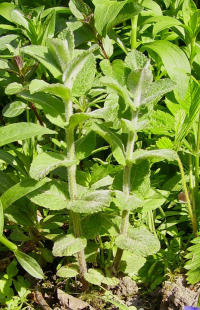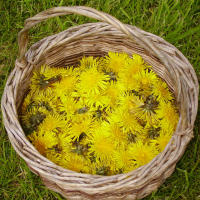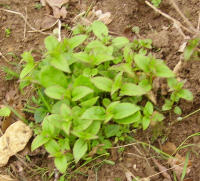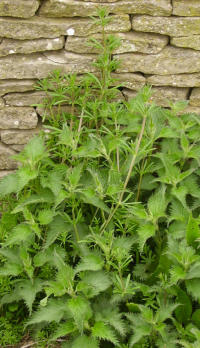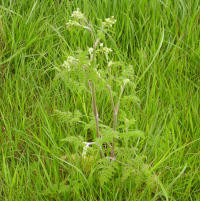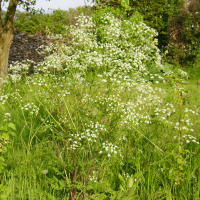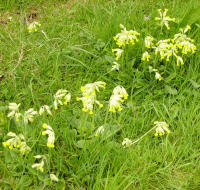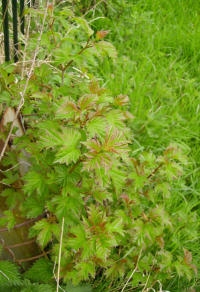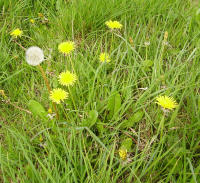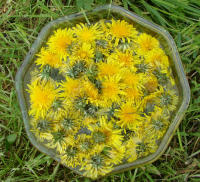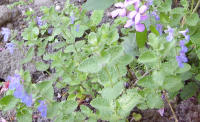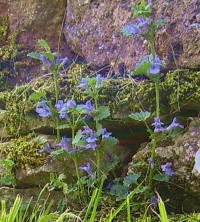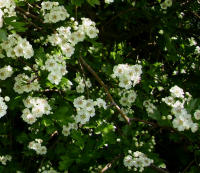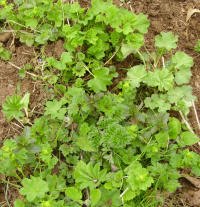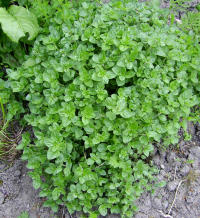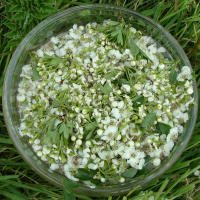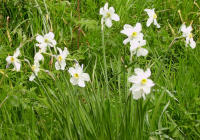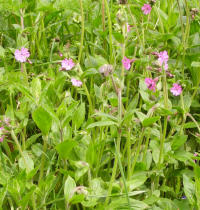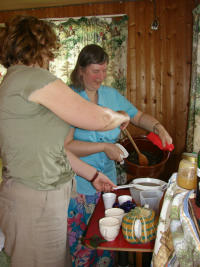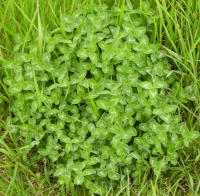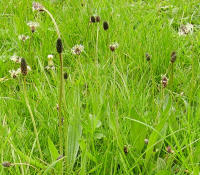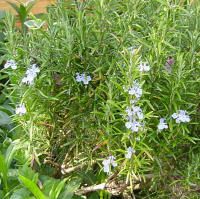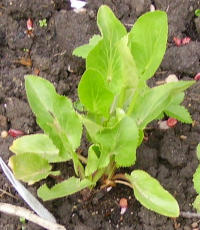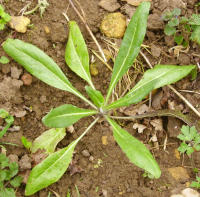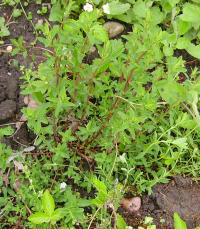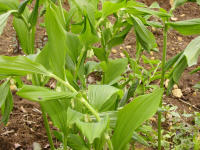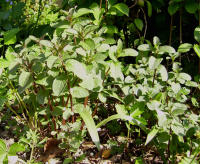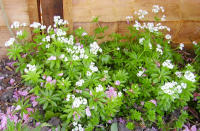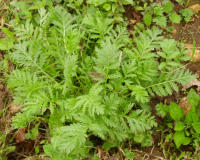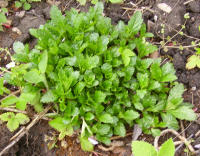|
|
May 2008
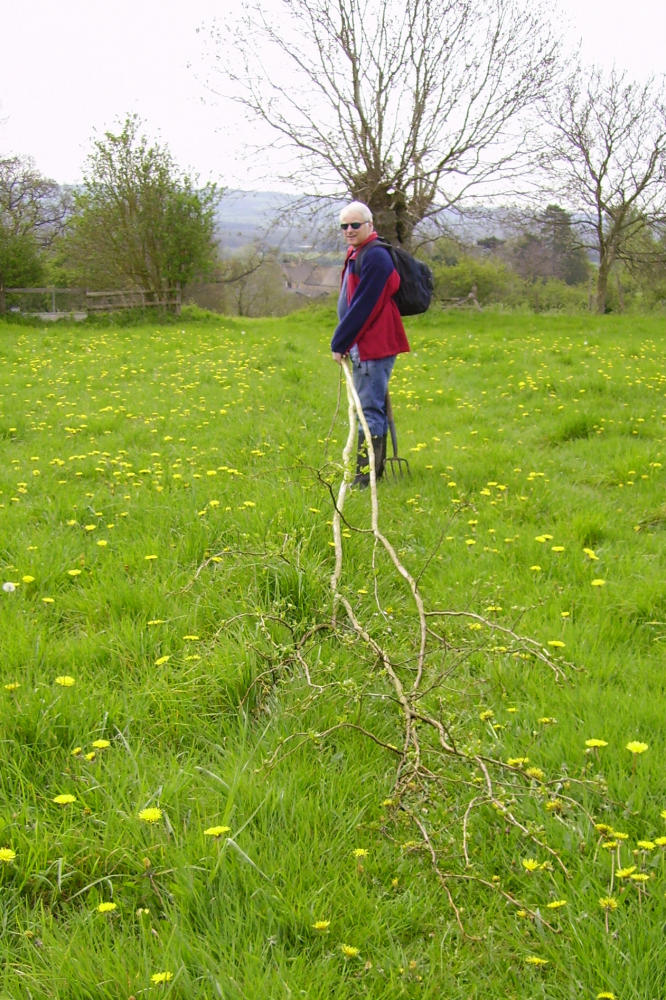
Transporting the hazel stakes, prior to cutting ...
|
 |
|
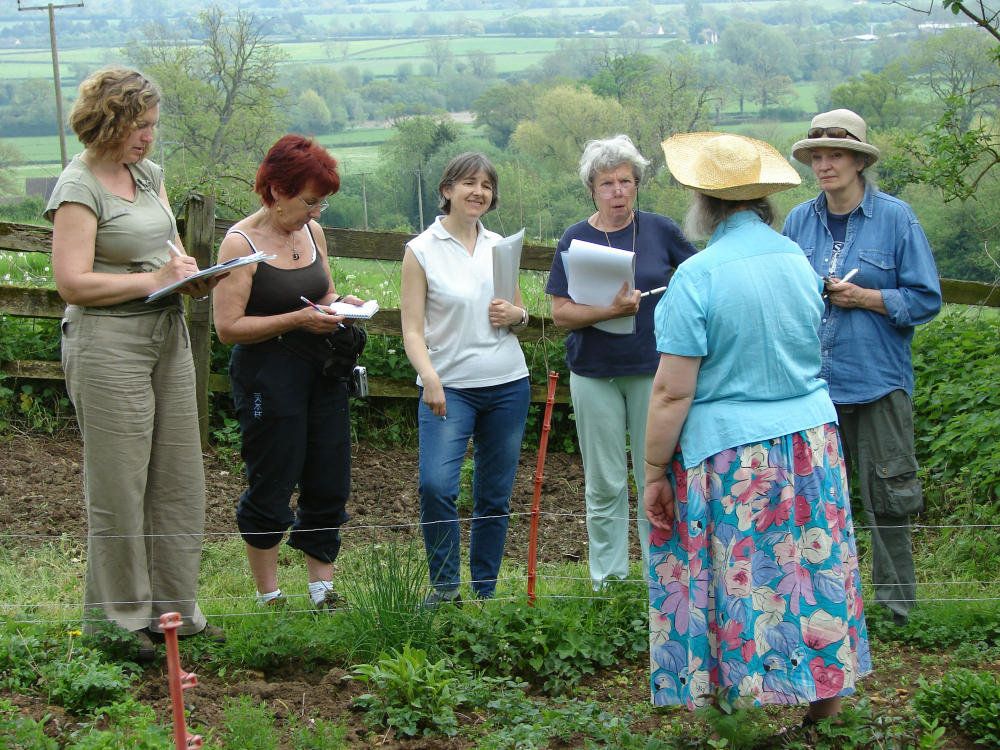
The May Workshop under way ... (photo - Debs Cook) |
 |
|
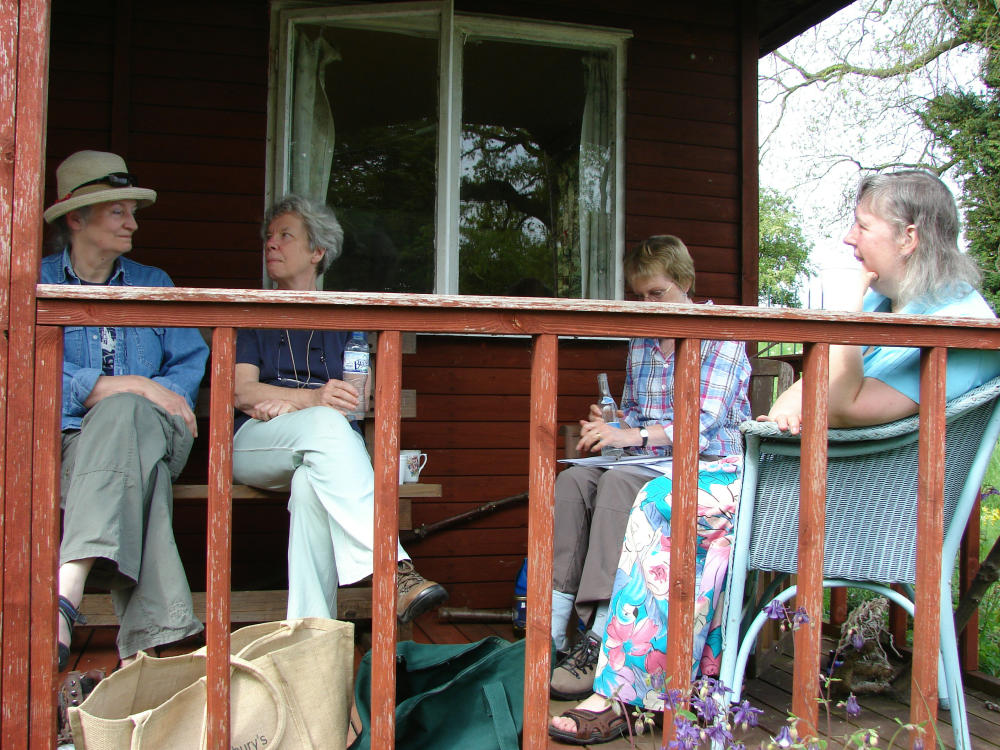
Discussing the benefits of herbs while relaxing on the
summer house veranda ... (photo - Debs Cook) |
 |
|
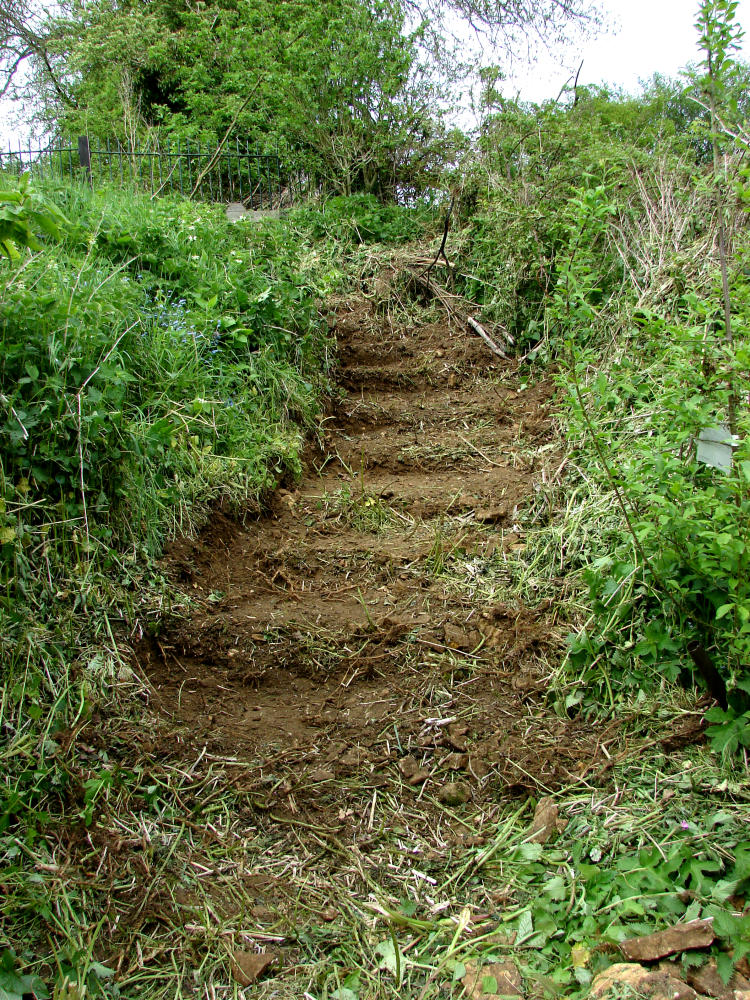
The foundations of the new stepped path took some hard work
digging and clearing of the undergrowth. Later in the year
we are hoping to build some more substantial steps with treated timber
steps and gravel treads. (photo - Debs Cook) |
|
May is always a profound month
for growth and this year is no exception. We spent two weekends working on
the Sanctuary with accompanying backache and general exhaustion. It was
amazing seeing how everything had grown in just one week!
As well as digging the skullcap bed and across the top of the main herb
garden, Chris and my father sorted out some new supports for the hops in the
top bed. Chris also finished digging along the patch by the fence removing
everything except the motherwort and goats rue plants which can run wild
there if they like.
I still haven’t done any weeding on the top herb bed, crossing my fingers
the few remaining Echinacea plants will not be completely overwhelmed by
mugwort and creeping comfrey.
During the first weekend, I picked a whole basketful of ribwort plantain
leaves to dry for the workshop the following Saturday. On the return journey
my basket was full of burdock leaves and dandelion flowers. The latter made
a dark brown syrup and the leaves were tinctured once I got home. The leaf
stalks I pickled using the recipe in Non Shaw's Book "Herbalism, an
illustrated guide".
I cut the burdock stalks from the leaves and tinctured the leaves, then cut
the stalks into 1" pieces. They filled a pint measure, so I blanched them in
boiling water and put them into a large glass jar. Then I heated a bottle of
organic cider vinegar together with 2 tablespoons of sugar, a cinnamon stick
and a large pinch of powdered cloves. When the mixture boiled I poured it
over the burdock stalks, then sealed the jar and labelled it. I forgot to
peel the stalks, but when I ate a couple after they'd been blanched, two
were so tender they just melted in my mouth! Amazing, I've never eaten
burdock stalks before!
When you collect dandelion flowers for syrup you have a choice, you can
either twist the green bits off and just use the flower petals (as you would
for wine making) or use the entire flowerhead. It doesn't really seem to
matter. The colour is different - golden if you just use petals and dark
brown if you leave the green bits on.
Place your flowers in a saucepan and either cover with water or measure the
amount of water (2pints to 4oz flowers). Simmer the flowers in water with
the saucepan lid on for about half an hour. Strain the flowers, pressing
them hard to remove any excess liquid. Measure this amount of liquid. Clean
the saucepan. Pour the liquid back into the saucepan and leave of the lowest
heat you can for as long as it takes for you to reduce the liquid by 7/8ths.
This means 2 pints reduces to 7 fluid ozs (or 2dl if you understand metric,
which I don't!)
Evaporation takes a long time. Usually the liquid will reduce by about an
inch down the side of the saucepan per hour depending on what heat source
you have. Gas is much quicker than a rayburn. I ended up with 3 pints liquid
from a 5 pint saucepan filled with flowers which I reduced for about 5 hours
to 1 pint. (You are allowed to give up if you get fed up of waiting for it
to evaporate down to 7floz.) I was aiming for it to reduce to 14fl
oz/3/4pint but couldn’t wait any longer.
You add a pound of sugar to each 7 fl ozs and gently stir this in until it
has all been absorbed/dissolved. You will need to do this back on the low
heat, otherwise you will be left with sugar crystals around the bottom of
the saucepan.
I added 2 pounds of sugar to my pint of reduced liquid and it filled 6 small
wine bottles. (The ones which provide a single wine glass full of wine.)
The dandelion syrup is a substitute for honey or maple syrup - so for
pouring over ice cream or pancakes or fruit salad or porridge. You could use
it as a sweetener in drinks, but I would want to add quite a bit of lemon
juice before I made it into a drink by itself. It's very sweet!!
I also gathered some cleavers from amongst the nettle beds to tincture.
During the weekend of the workshop, we were granted the most amazing summer
weather –gloriously bright and hot! As we arrived at the farm on the Friday
evening, we followed the path of a thunder storm which was just retreating
as we got out of the car. I needed to pick some nettles to make an overnight
maceration. It was the first time I had ever harvested in the dark to the
accompaniment of lightning forks and thunder flashes! It was really quite
amazing!
The nettle maceration was amazing too. Simply covering the nettles with cold
water in a clean plastic washing up bowl produced a rust-red liquid which
tasted “green and healthy”! Everyone who tried it found it very refreshing
on a hot day.
We made the double infused ribwort plantain oil which came out a golden
colour, very unlike the dark green/almost black of the comfrey, yarrow and
horse chestnut leaf oil I made the following morning or the violet leaf oil
I made on the Monday evening at home from a mixture of field and garden
violet leaves.
We also tried some cleaver and lemon balm tea and ground ivy tea, which I’d
been wanting to try for a long time. It was a very subtle flavour that I
could really enjoy. The hot chocolate mint tea was another favourite.
Debs Cook’s husband, Simon, did a sterling job with Chris digging out the
foundations for a new stepped path from the bottom bed up to the top herb
bed. Now Chris has to sort out some tanalized timbers for the steps and
think about how we cover the steps to make them safe.
Before coming home, I harvested some more burdock leaves to dry in the
summerhouse, alongside hawthorn blossom and some red clover which suddenly
burst into blossom. The bugle and ground ivy were in deep profusion, but
although I took back a bundle to tincture of the ground ivy, the bugle was
left to colour the Sanctuary for another day.
Thanks to Debs Cook for her pictures of the Workshop. |





